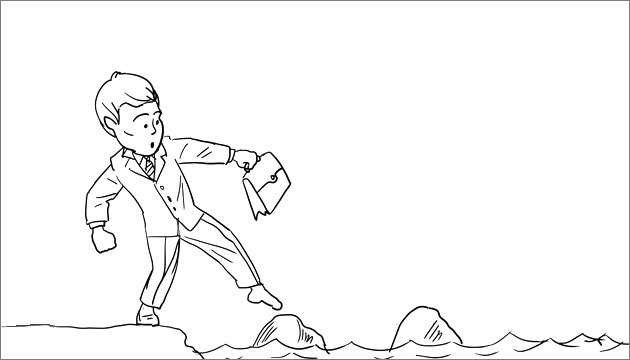Did you ever feel as though you just don’t have the mental resources to deal with the next task your business requires? As though you just can’t think straight and have to take a rest or eat something? Well, if so, this post is for you…
Daniel Kahneman is a well-known psychologist who is notable for his research on judgment psychology and behavioral economics. He developed, along with Amos Tversky, the prospect theory, for which he was awarded the 2002 Nobel Prize in Economics.
In 2011, he published his most recent book, Thinking Fast and Slow, which I just started reading this weekend. The book is an easy read, explaining in an easy-to-understand way over ten years of research in the area of human thought and decision-making. I highly recommend it; so much so that I couldn’t wait to share some of the anecdotes in it. Therefore, I decided to write this post.
In the book, Kahneman describes two different and separate thought systems. System 1 is the intuitive one. When we use it, our judgment is based on fast, emotional, primary, stereotypic, and automatic thought processes. System 2 is the rational one. When we use it, our judgment is based on slow, logical, effortful, and analytical thought processes.
In this post I would like to focus on how we juggle these two systems in our minds and touch on the subject of self-control.
I’ll first start with two riddles:
A ball and a racket cost $1.10 together. The racket cost a dollar more than the ball. How much does the ball cost?
All roses are flowers. Some flowers wither quickly. Therefore, some of the roses wither quickly. Is this statement logical?
Did your intuition tell you the ball cost ten cents and that some of the roses wither quickly? Well, unfortunately, it misled you. But don’t feel bad; most people get this wrong. The ball actually cost five cents, and there’s a chance the flowers that wither quickly are not the roses.
How do these riddles utilize the two thought systems? Well, if you answered wrong, you probably used only System 1, and if you got it right, you probably put System 2 to work as well. What happened in actuality is that System 1 offered you the quick automatic answer. Then System 2 was supposed to come into play and help you assess whether your System 1 answer was correct, but sometimes System 2 is just too lazy. We are often too quick to be satisfied with what System 1 has offered us and avoid thought processes that require cognitive effort.
With that said, the activation of System 2 is not that easy. If your ego is depleted—meaning that you have less self-control, maybe because you just worked out, you’re tired or hungry, or you just performed a cognitively complex task—you will automatically turn to System 1 and will have a very hard time activating System 2.
I hope this post was as much fun to read as it was to write.
Related Posts
|
|
|



